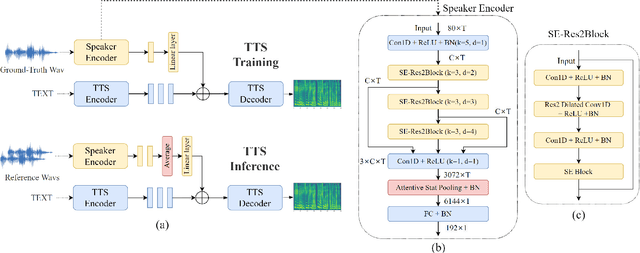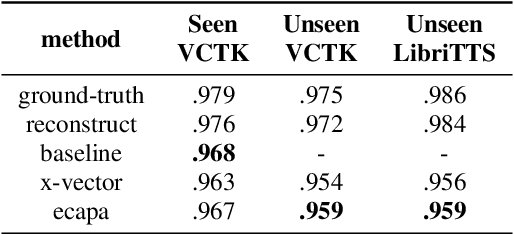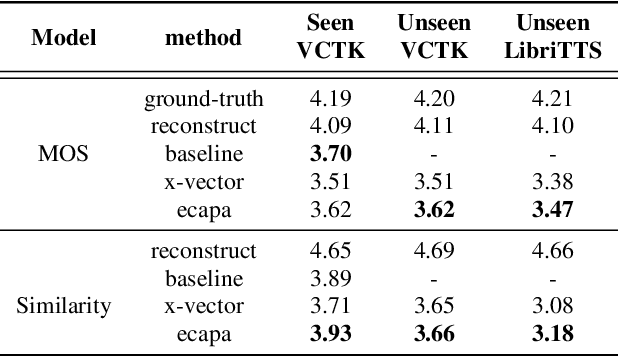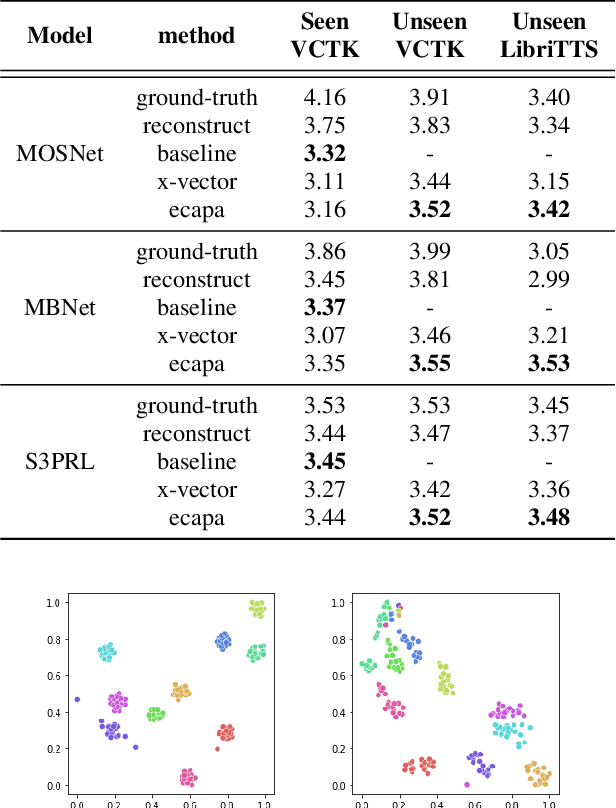ECAPA-TDNN for Multi-speaker Text-to-speech Synthesis
Paper and Code
Mar 26, 2022



In recent years, neural network based methods for multi-speaker text-to-speech synthesis (TTS) have made significant progress. However, the current speaker encoder models used in these methods still cannot capture enough speaker information. In this paper, we focus on accurate speaker encoder modeling and propose an end-to-end method that can generate high-quality speech and better similarity for both seen and unseen speakers. The proposed architecture consists of three separately trained components: a speaker encoder based on the state-of-the-art ECAPA-TDNN model which is derived from speaker verification task, a FastSpeech2 based synthesizer, and a HiFi-GAN vocoder. The comparison among different speaker encoder models shows our proposed method can achieve better naturalness and similarity. To efficiently evaluate our synthesized speech, we are the first to adopt deep learning based automatic MOS evaluation methods to assess our results, and these methods show great potential in automatic speech quality assessment.
 Add to Chrome
Add to Chrome Add to Firefox
Add to Firefox Add to Edge
Add to Edge